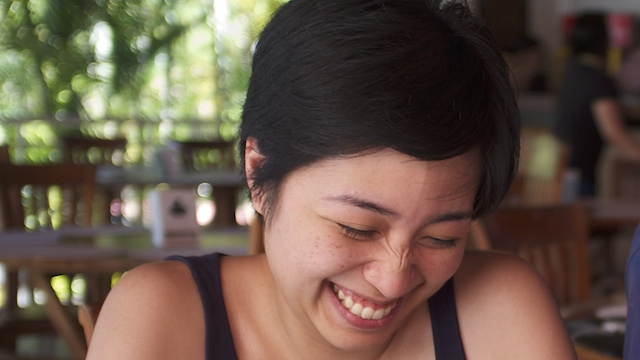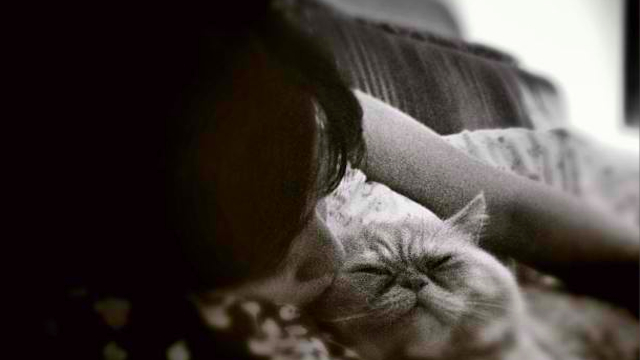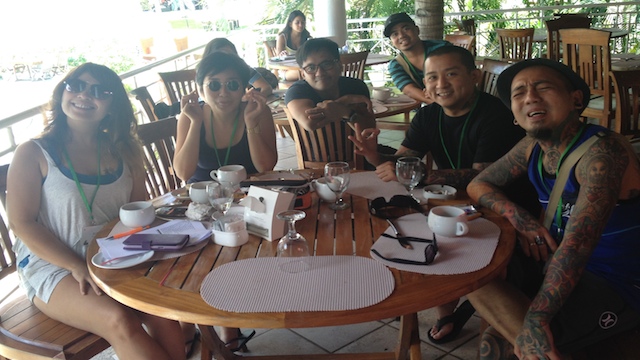SUMMARY
This is AI generated summarization, which may have errors. For context, always refer to the full article.

DUMAGUETE CITY, Negros Oriental – Seven years ago, in a music scene largely dominated by alternative rock, Armi Millare and band Up Dharma Down broke into the mainstream music consciousness.
Millare calls Up Dharma a performing band, more suited to live gigs than to television or radio.
It is difficult to put a finger on the music. It wasn’t rock, it wasn’t jazz, it wasn’t pop, it wasn’t techno. One thing was certain – Up Dharma Down was an alternative to “alternative.”
And suddenly – and quite reluctantly – the soft-spoken girl behind the piano found herself in the limelight.
The lure of the ivories
“I was around five or six, I think,” Millare says. “A piano just got delivered to the house, so I started tinkering with it.”
While children her age were out playing on the streets, the young Millare spent her afternoons on the piano, preferring to make music by herself.
She began to explore other instruments – the violin, then the guitar, and then the drums.
“In the house we had a lot of instruments. For me once you learn the piano and the guitar, you can branch out into other instruments. All you need to have is a sense of rhythm and an interest in music.”
She eventually learned how to play the kulintang and the Japanese koto, considering them crucial to her songwriting process.
Millare comes from a typical middle-class Filipino family, where security and stability is paramount. The Millare household was not particularly musical.
“I was kind of brainwashed as a kid to be a doctor because my mom was a nurse, my dad was into business so there was no way that us kids would be doing anything else.”
To her parents, music was a pastime. To their daughter, it meant much more.
She wanted to make it her way of life.
A decade of defiance
It was during Millare’s sophomore year in high school when she discovered a musical education was possible.
“I came from a traditional Filipino family, where there was an engineer, a doctor, a lawyer,” she says. “But when I learned there was music school, I knew I’d go for it.”
Coupled with the growing pains of adolescence and her own introverted nature, Millare’s first foray into serious music was difficult. She brought the idea up to her parents, and was told it was not an option. She was not going to take no for an answer.
“It was really bad, a lot of lying happened. I always used schoolwork as an excuse whenever I would go to gigs.”
Millare feels it was justified. For her, it was part and parcel of the compromise she had to make to prove that she was serious about making music, without the infamy largely attributed to the rock n’ roll lifestyle.
“I wasn’t going to come home pregnant. I just wanted to make music. I didn’t even drink or smoke, ” she says.
When Up Dharma Down began to make waves in the local music scene, Millare made the decision to move out and pay for her own school tuition.
“My parents wanted a future that was stable, and the entertainment industry can be anything but. They just wanted to be sure that I knew what I was getting into, so I had to prove myself, work twice as hard.”
Her parents have now come to terms with her choice to make music.
“We’re okay, finally, after ten years,” she says. “But it took a while.”
Braving the bright lights
Millare says her songs are “either very sad, or very sarcastic.” She finds herself starting off with the melody more often than lyrics, although there are times when a catchy line comes first.
“With ‘Oo,’ it started with ‘Di mo lang alam,’” she says.
The song, a single from her band’s first album Fragmented, became an anthem of Pinoy millennials pining over unrequited love.
Up Dharma Down may have garnered critical acclaim and a loyal following through the years—the BBC calls them the Manila band “most likely to cross over to the lucrative Anglophone market of North America”— but Millare still remains painfully shy. When she raises her hand while performing, fingers opening and closing, it’s not a call for the audience to follow suit.
“In the middle of the song, I signal the lights people to turn down the lights a bit,” she admits. For her, the glare of the limelight can be daunting, in more ways than one.
Watch a video of Up Dharma Down’s performance at the #2030NOW PH+SocialGood Summit in September 2013. (WATCH: AS IT HAPPENS: #2030NOW PH+SocialGood)
She dislikes stages that are too high and too far from the crowd, because it makes her self-conscious. She dreads the lulls between songs during live performances. She says she does not mean to be standoffish, but finds herself second-guessing her interaction with the crowd. She is awkward at small talk, but she goofs off in the presence of close friends and like-minded people. It takes a lot of prodding for her to perform in impromptu jams, no matter how intimate.

“There is hardly enough alone time,” she says. “If I had enough alone time, I’d read. Or listen to music. Or daydream. Or spend time with my cat, who I really miss right now.”
Millare lives with an eight year-old cat named Meowmits. “He’s the longest relationship I’ve had,” she says. She takes out photos of her cat like a stage mother, showing off his Instagram account. She says he owns her, and that his upkeep takes up a significant chunk of her grocery bills. He sulks every time she steps out of her apartment, the same way he did when she left for her five-day sojourn to Dumaguete for the Ryan Cayabyab-led Elements national songwriting camp.
In spite of the shyness, Millare and the band are known for the pains they take to build relationships with their listeners. The cult of Dharma is a small, intimate group, the following built online and carried through across years of gigs and small events.
“We don’t call them fans,” she said once. “We call them listeners.”
Mentoring the young
The shy, reticent girl on the piano now finds herself mentoring a group of aspiring songwriters. It is her first time to serve as a coach – to no less than 60 aspiring songwriters.
“These campers are too good – do they really need camp?” she tweets while watching the campers perform onstage.

An album produced by each of the mentors – Millare, Cayabyab, and other OPM artists – is in the works, featuring songs composed by the campers inspiring the nation to pick up the pieces in the harrowing aftermath of Typhoon Yolanda (international name Haiyan).
It is a project close to Millare’s heart. In 2009, her own home in Provident Village in Marikina was flooded by typhoon Ondoy. The memory still stings up to this day.
“Just saw some of @jakeverzosa’s photos from his week-long stay in Tacloban and it is far from over,” she tweeted recently. Verzosa covered the aftermath of Yolanda for Rappler.
“Isipin mo yakap mo yung mahal mo sa buhay tapos pag lingon mo inanod na ng tubig.” (Imagine holding your loved one, and then turning to see them gone.)
It has been four years since Ondoy, seven years since Up Dharma Down broke into the mainstream, and ten years since Millare moved out of her parents’ house. She still finds herself with the same enthusiasm as when she first decided to make music for the rest of her life.
Now that music is her focus, there is more learning, more sharing, more giving. – Rappler.com
Add a comment
How does this make you feel?
There are no comments yet. Add your comment to start the conversation.